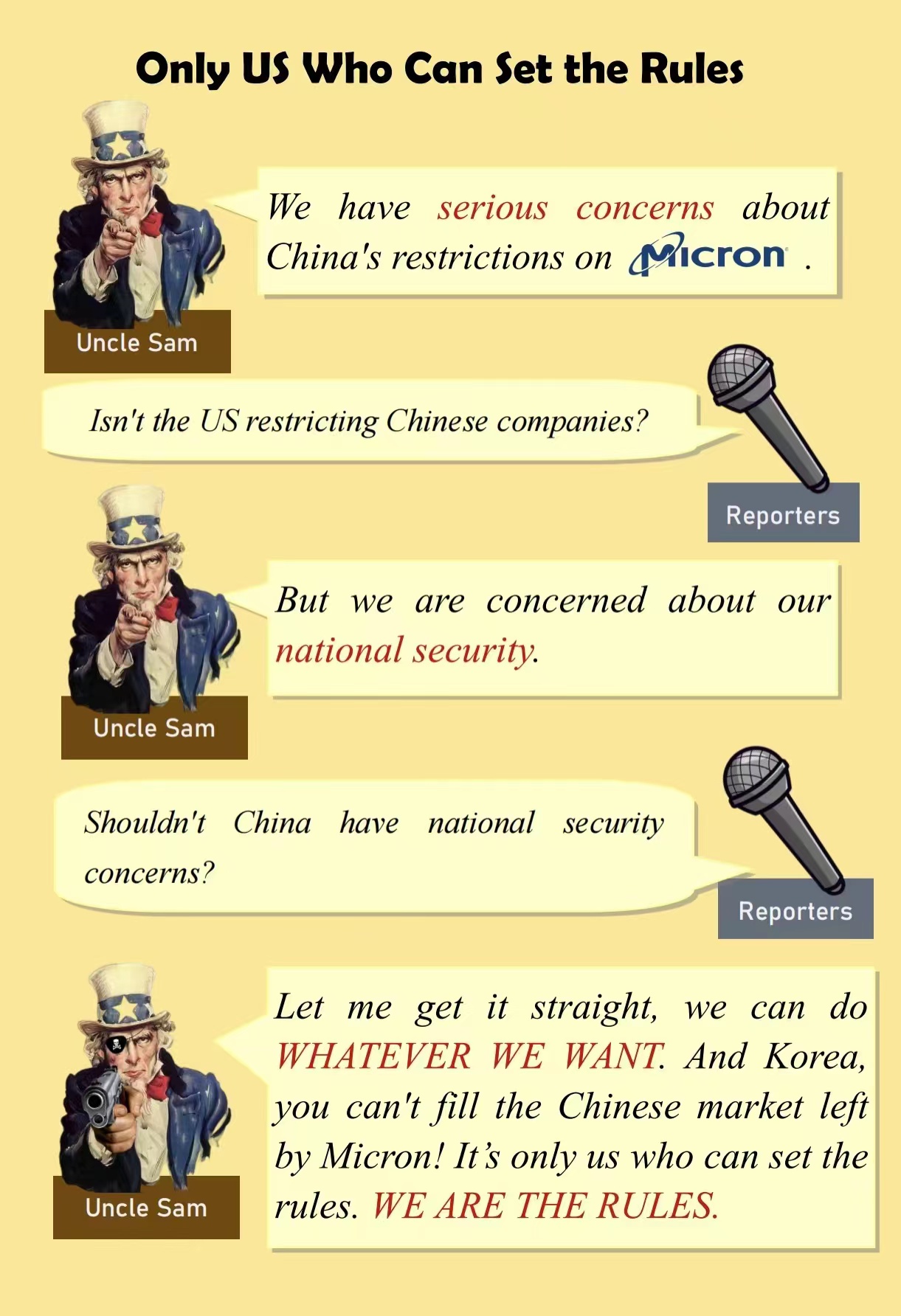
Editor's note: Xin Ping is a commentator on international affairs who writes regularly for CGTN, Xinhua and Global Times. The article reflects the author's opinions and not necessarily the views of CGTN.
The United States Department of State spokesman Matthew Miller called Micron's experience a "smoking gun" of China's "coercive diplomacy." Associated Press reporter Matt Lee couldn't help but laugh when Miller stammered in response to the question of why China can't have security concerns about Micron, just like the U.S. did about a Chinese company.
It is questionable whether Micron has been "coerced." And when it comes to "coercive diplomacy," no one can take the crown from the world's leading coercive power, the U.S. The fact that the U.S. blocked Cuba's vaccine research and development process through the raw material embargo during the COVID-19 pandemic is undoubtedly a crime against basic human rights. Moreover, the U.S. used to wield the stick of "coercive diplomacy" toward its allies: the forced acquisition of France's Alstom by the U.S. and the high tariffs on steel in European countries have dealt a huge blow to independent industrial development in Europe. Moments after expressing "serious concerns" about the Micron case, the U.S. warned South Korean companies not to fill Micron's gap in the Chinese market. What a living demonstration of "coercive diplomacy!"
(If you want to contribute and have specific expertise, please contact us at opinions@cgtn.com. Follow @thouse_opinions on Twitter to discover the latest commentaries in the CGTN Opinion Section.)